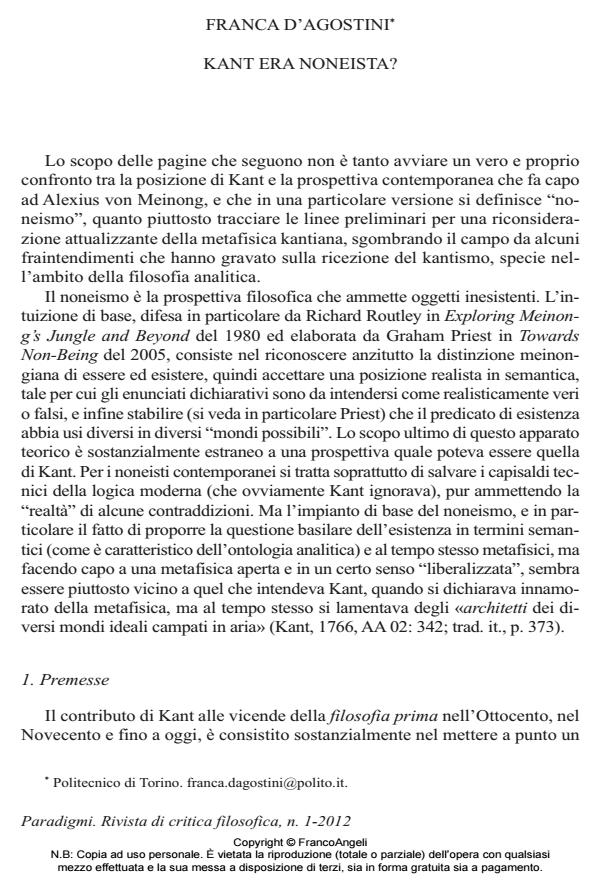Was Kant Noneist?
Journal title PARADIGMI
Author/s Franca D'Agostini
Publishing Year 2012 Issue 2012/1
Language Italian Pages 19 P. 91-109 File size 118 KB
DOI 10.3280/PARA2012-001005
DOI is like a bar code for intellectual property: to have more infomation
click here
Below, you can see the article first page
If you want to buy this article in PDF format, you can do it, following the instructions to buy download credits

FrancoAngeli is member of Publishers International Linking Association, Inc (PILA), a not-for-profit association which run the CrossRef service enabling links to and from online scholarly content.
The article focuses on the problem of metaphysics, and outlines a preliminary confrontation between Kant’s view and noneism (the Meinongian perspective outlined by Richard Routley and Graham Priest nowadays). Kant’s view in metaphysics is presented as a form of realism, though corrected by semi-constructionism in epistemology. This is a point that contemporary so-called "Kantianisms" have underrated: Putnam’s criticism of ontology is declaredly "Kantian", but it does not take into account the special idea of ontology and metaphysics involved in Kant’s view. Kant does not renounce the traditional project of metaphysically describing reality in itself (as Putnam says); rather, he lightens the notion of metaphysics, by suggesting the critical method, based on the idea of "common world". In this perspective, it is easy to see that Kant adopts a sort of liberalized metaphysics, in one with a realistic semantics: and this is exactly what Meinongians, namely noneists, try to do.
Keywords: Kant, Meinong, Putnam, Metaphysics, Noneism, Realism.
Franca D'Agostini, Kant era moneista? in "PARADIGMI" 1/2012, pp 91-109, DOI: 10.3280/PARA2012-001005